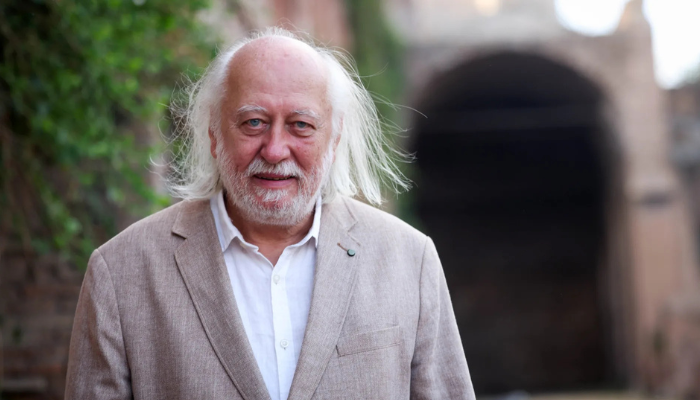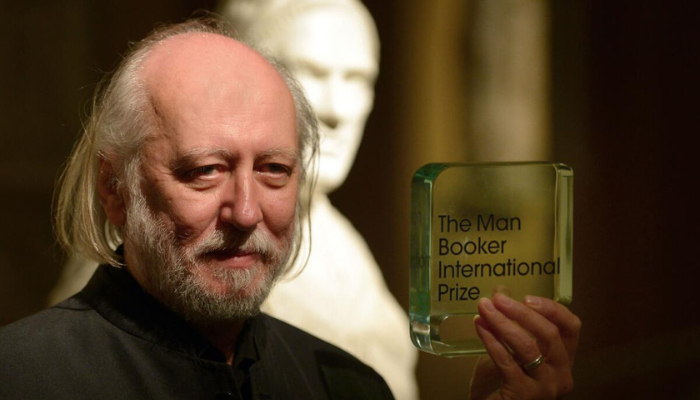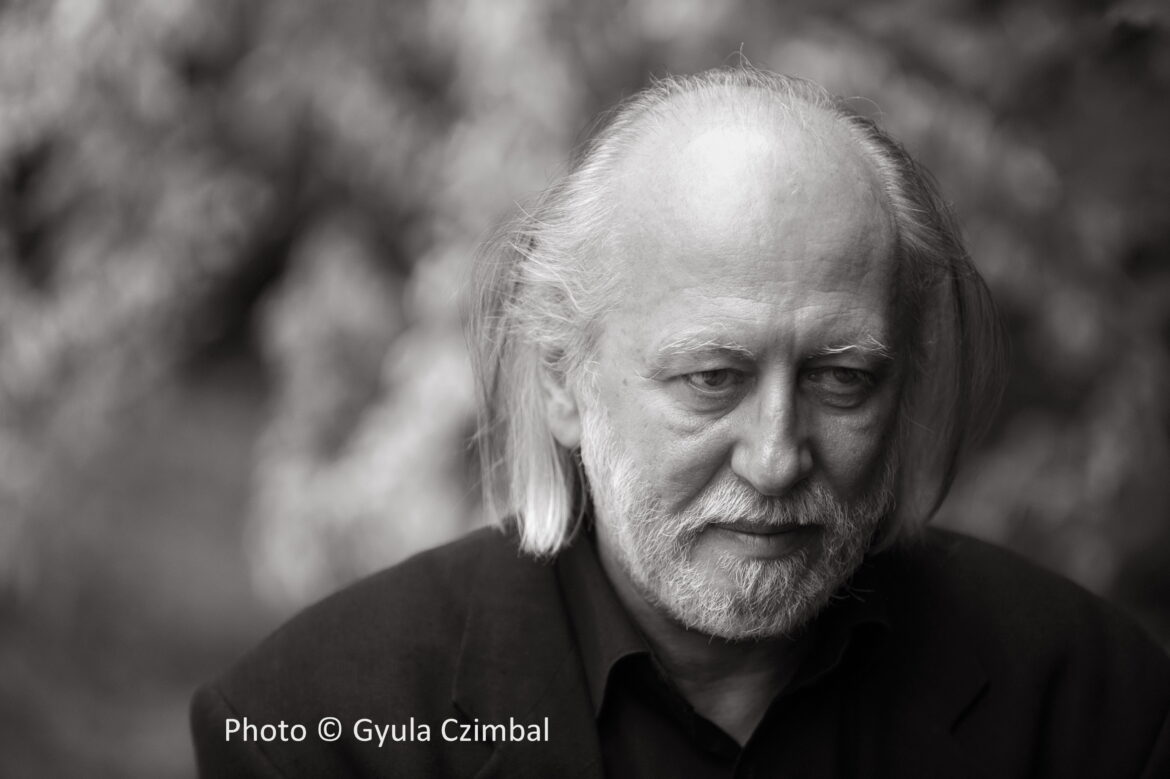The global literary world celebrates a new milestone as Hungarian author Laszlo Krasznahorkai wins the 2025 Nobel Prize in Literature. His victory honors decades of literary brilliance, deep philosophical insight, and a distinctive voice that challenges and inspires readers worldwide. This year’s Nobel Committee praised him for his “visionary and uncompromising storytelling,” a hallmark that sets him apart from his contemporaries.
This historic win is not just a literary triumph but also a cultural moment gaining attention in both hollywoodreviewz and celebrity news, as global audiences turn their eyes toward an author who defines art’s enduring power.
Who Is Laszlo Krasznahorkai?

Born in 1954 in Gyula, Hungary, Laszlo Krasznahorkai built a career rooted in profound philosophical exploration and a unique narrative style. His writing dives deep into themes like chaos, despair, and the fragile beauty of human resilience. Readers recognize him for his long, flowing sentences and hypnotic prose that pull them into intricate worlds filled with tension and meaning.
Krasznahorkai’s early works, such as Satantango and The Melancholy of Resistance, earned critical acclaim for their depth and originality. Many of his novels later transformed into masterpieces of cinema through his collaboration with Hungarian filmmaker Béla Tarr. Their partnership brought Krasznahorkai’s haunting worlds to life and introduced his ideas to a broader audience.
Why Laszlo Krasznahorkai Deserves the Nobel Prize
Laszlo Krasznahorkai’s literature captures the struggle of modern humanity. His stories focus on individuals battling hopelessness in collapsing societies. Yet, they also shine with moments of beauty, redemption, and resilience. His writing style remains bold, fearless, and utterly unique — proving that literature can still provoke deep thought in a fast-paced digital age.
The Nobel Prize committee recognized him for his unmatched ability to fuse realism with philosophical reflection. His books remind readers that art still holds the power to question, disturb, and heal. That’s why this award resonates beyond the literary world — even celebrity news outlets and pop culture pages have started discussing his remarkable journey.
How the Nobel Prize Elevated Literature in Pop Culture

Krasznahorkai’s win has sparked global discussions far beyond the literary community. It proves that meaningful storytelling still holds a vital place in our world dominated by technology and trends. Interestingly, entertainment platforms such as HollywoodReviewz have begun exploring his influence on art and film.
The Nobel Prize often attracts attention from the mainstream audience, but Krasznahorkai’s recognition bridges an even wider gap. His collaboration with filmmakers and his cinematic writing style appeal to lovers of both literature and film. His name now appears alongside celebrated artists, expanding the definition of a “celebrity” in today’s evolving creative landscape.
A Brief Look at His Iconic Works
- Satantango – A dark, atmospheric novel that explores a decaying village and the moral collapse of its inhabitants.
- The Melancholy of Resistance – A powerful exploration of societal chaos and transformation.
- War & War – A story that confronts existential dread and the human need for meaning.
- Baron Wenckheim’s Homecoming – His later masterpiece, blending humor, despair, and beauty in equal measure.
Each of these works challenges conventional storytelling while offering deep emotional and intellectual rewards.
Global Reaction to Krasznahorkai’s Nobel Prize
After the Nobel announcement, fans, critics, and fellow writers across the globe flooded social media with messages of admiration. Literary communities in Europe, Asia, and the United States praised his groundbreaking vision. Bookstores reported increased demand for his novels, while streaming platforms noticed renewed interest in Béla Tarr’s film adaptations, which visualize Krasznahorkai’s grim yet poetic universes.
Cultural commentators in celebrity news segments described the award as “a victory for deep thinkers,” emphasizing how Krasznahorkai’s win represents the triumph of intellect over entertainment.
Why This Win Matters for Literature’s Future
Laszlo Krasznahorkai’s Nobel Prize in Literature serves as a reminder that literature remains essential in understanding the human condition. His success encourages writers to embrace authenticity and creativity, regardless of trends or commercial pressures.
The recognition of a Hungarian novelist with such a complex style also reaffirms that great art transcends borders and languages. It demonstrates that readers still crave challenging, thought-provoking stories — even in an era ruled by social media and celebrity gossip.
As HollywoodReviewz and celebrity news outlets continue covering this remarkable achievement, they help bring literary excellence to the mainstream spotlight, inspiring younger generations to explore deeper forms of art.
Conclusion
The announcement that Laszlo Krasznahorkai is awarded the Nobel Prize in Literature celebrates not only his personal achievement but also the timeless power of words. His win bridges literature, cinema, and philosophy, connecting readers and thinkers worldwide.
In a world of fleeting fame, Krasznahorkai’s work stands as a reminder that art rooted in truth, depth, and human emotion never fades. His Nobel Prize win shines a light on the enduring value of literature — and on the readers who continue to believe in its transformative magic.

